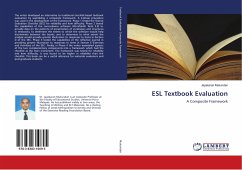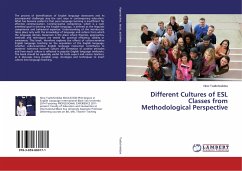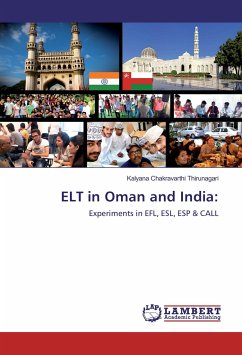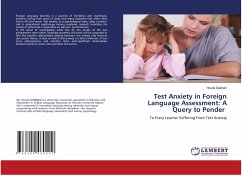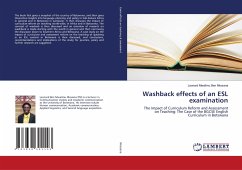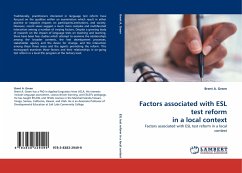
Factors associated with ESL test reform in a local context
Factors associated with ESL test reform in a local context
Versandkostenfrei!
Versandfertig in 6-10 Tagen
45,99 €
inkl. MwSt.

PAYBACK Punkte
23 °P sammeln!
Traditionally, practitioners interested in language test reform have focused on the qualities within an examination which result in either positive or negative impacts on participants,institutions, and society. However, recent views suggest a much more complex and multifaceted interaction among a number of varying factors. Despite a growing body of research on the impact of language tests on teaching and learning, there have been few studies which attempt to examine the relationships among the broader contexts, the test development processes, stakeholder agency and the desire for change, and t...
Traditionally, practitioners interested in language test reform have focused on the qualities within an examination which result in either positive or negative impacts on participants,institutions, and society. However, recent views suggest a much more complex and multifaceted interaction among a number of varying factors. Despite a growing body of research on the impact of language tests on teaching and learning, there have been few studies which attempt to examine the relationships among the broader contexts, the test development processes, stakeholder agency and the desire for change, and the interaction among these three areas and the agents promoting the reform. This monograph examines these factors and their relationships in on-going test reform in a local ESL program at the tertiary level.




